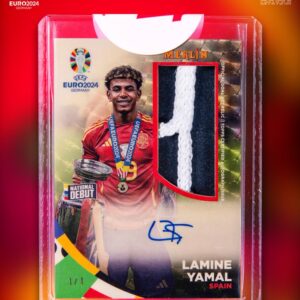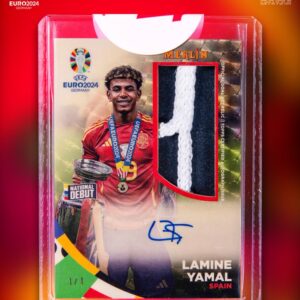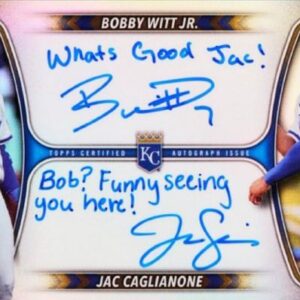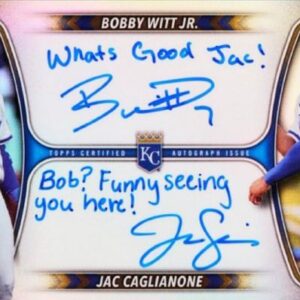In the grand bazaar of collectibles, where rarities are snapped up like museum-worthy treasures, a saga unfolds featuring a 1979-80 O-Pee-Chee Hockey card case and its reluctant new owner, Jack Arshawsky. The case, commanding a cool $3.7 million at a Heritage Auctions event, sits comfortably—but temporarily—in their Texas vault awaiting a destiny shaped by passion rather than possession.
Jack Arshawsky, a seasoned real estate agent hailing from Vaughan, Ontario, initially swept into the auction with visions of owning a significant slice of hockey history. His winning bid imprinted his name in the annals of high-stakes collectible auctions, yet the glow of victory dimmed as thoughts of the underbidder’s disappointment lingered and stirred a magnanimous resolve within him. Now, having parted with $3 million of the total price, the quest for a more passionate owner consumes his days.
Despite Jack’s noble intentions, transferring ownership of the case, bursting with potential troves of Wayne Gretzky rookie cards, has proven more challenging than wresting it from the auction block. In his journey to find a collector whose heart beats in sync with the rustle of vintage card packs, he eyed enthusiasts of stratospheric stature—Edmonton Oilers luminary Daryl Katz, chart-topping artist Drake, and hockey legend Wayne Gretzky himself. Alas, no takers have yet emerged from this constellation of potential patrons.
Amidst this search, the unopened case—a veritable time capsule cradling 16 boxes, each with 48 untouched packs—preserves its mint condition, a quiet sentinel of days when Gretzky skated into the spotlight. Heritage Auctions, vanguards of numerous fleeting treasures, observes this unusual, prolonged custody. They note that while it’s not uncommon for auctioned items to remain under their wing due to financial arrangements, they usually anticipate quicker conclusions to such high-stake sales.
To navigate the complexities of this emotional transaction, Arshawsky enlisted Hy Bergel, a sharp-witted Toronto attorney, ensuring that all potential deals align with his altruistic vision. Jack’s aim, refreshingly, isn’t to turn a profit but to champion the card case’s journey to a safe haven, where it will be both valued and revered.
If the horizon remains devoid of a suitable custodian, Arshawsky contemplates an extraordinary measure—gifting this precious cache to a childhood friend, an enthusiast who would undoubtedly treasure it. This plan B underlines his earnest desire for the cards to be appreciated fully and fervently, akin to a fervor that perhaps, only childhood friendships can understand.
Thus, the case of the $3.7 million O-Pee-Chee Hockey card case continues—an artifact caught between the realms of commerce and nostalgia, awaiting the right collector to write the next chapter of its storied, and still sealed, existence.






